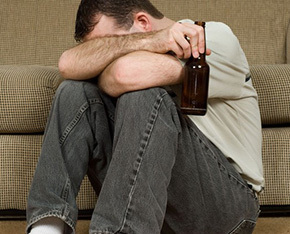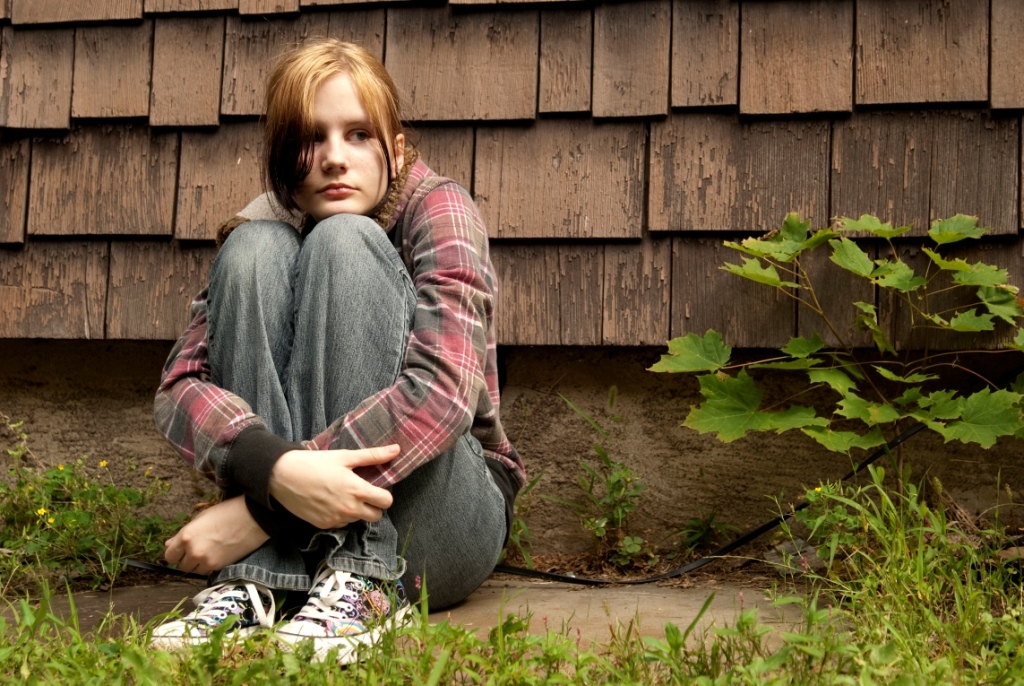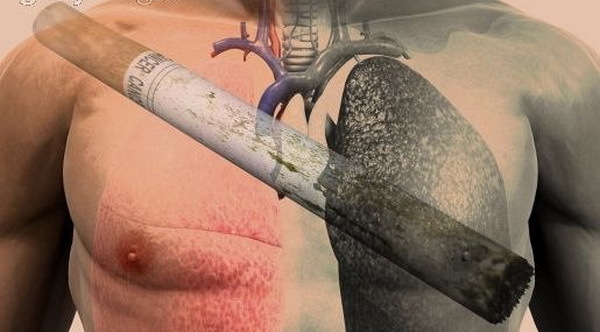About Male Depression - Causes, Symptoms and Methods of Combating the Disease
 "Men do not cry" - this stereotype today guides the lives of most men, regardless of age and status. But belief in this principle does not help to maintain a harmonious psycho-emotional state: every year the problem of male depression increases, and social stereotypes only worsen the situation.
"Men do not cry" - this stereotype today guides the lives of most men, regardless of age and status. But belief in this principle does not help to maintain a harmonious psycho-emotional state: every year the problem of male depression increases, and social stereotypes only worsen the situation.
Practice shows that most of the men are embarrassed by their emotions, consider them to be weak and try in every possible way to dissociate themselves from their own experiences. Well, to share your feelings with someone is a taboo subject in general. Hence the denial of the depressed state and its hidden and "modified" states. If a woman still admits going to a psychologist, then most of the men are at the reception of the doctor of the soul in the pre-suicidal state.
It is important to understand that depression is not a weakness of character. It is the first beacon to the fact that life requires change. And to visit a psychotherapist means to say "yes" to your own health and the quality of your life.
Contents
- 1 About the causes of male depression
- 1.1 Hereditary and hormonal factors
- 2 Symptoms of depression in men
- 3 How to deal with depression?
- 4 Important digression
About the causes of male depression
Is there a mathematically exact relationship between cause and depression? No, it is not - every case is unique, because we are upset by what is important to us, and for each man - it's something of his own. And all the work with clinical patients allows us to identify several of the most "popular" factors, which become the trigger of depression. Let's list them:
- loss of work;
- dips in your personal life;
- sexual problems;
- long conflict situation at work, lack of adequate rest;
- death of a loved one;
- divorce;
- financial turmoil, debts;
- physical and sexual violence( for the period of adolescence and youth);
- failure to achieve goals( relevant in the mid-life crisis);
- various psycho-traumatic situations of a personal nature.
Sometimes depressive symptoms reveal themselves without an understandable reason. In such cases, it is rather a secondary depression that has arisen against the background of worn-out nervous system;More simply, your neurons are "tired".So, if the mental and emotional states have already been broken, then the development of depression can serve anything.
Hereditary and hormonal factors
It is believed that a certain percentage of readiness for depression is inherited. And if one of your older relatives suffered from any disorders, including depressive episodes, then the risks of "picking up" the depression increase. However, the relationship of inheritance has not yet been fully proven.
The second question is the relationship between hormones and depression. In an extremely crude version, we can distinguish the group of "happiness hormones":
- oxytocin is an attachment hormone: it is produced in situations of tenderness, warmth, sexual intimacy, and also when dealing with pets;
- dopamine - reinforcement hormone( wanted and received): it is thrown into the blood when we reach the desired;
- endorphin - a hormone of heroes: it is developed in stressful, dangerous and extreme situations. It leads to a strong activation of the nervous system, a decrease in stress in which is perceived as pleasure;
- serotonin - a social hormone, is produced when we feel that we are recognized and approved. That same mythical hormone of joy.
If the prolonged depression and weakness is associated with a lack of hormones, the psychologist will not help here - special treatment is required with the appointment of hormonal drugs. Problems with the development and regulation of the amount of certain hormones can be inherited.
Symptoms of depression in men
Classical triple of the depressive syndrome:
- strong-willed and motor retardation;
- hypotonic mood decrease( the intensity of all mental processes decreases);
- the decline of intellectual skills and activity.
However, this is already a clinical picture, which is often associated with other disorders. And yet, approximately in this form, there is a depression in women( apathy, indifference, lack of feelings of joy, sadness).In men, however, depression does not always assume a classical appearance.
In principle, signals about the development of a depressed state can serve as:
- an increase in irritability and nervousness;
- outbreaks of aggression and anger;
- sharp and frequent mood swings( a dangerous symptom);
- disturbance of sleep-wake rhythms;
- somatic symptoms( various pain and malaise);
- weakening of sexual desire, neurotic loss of erection;
- sharp emergence of extreme hobbies;
- gambling( ludomania) - a pathological tendency to gambling;
- development of chemical addictions( alcoholism, drug addiction, smoking);
- total care in work.
And yet, it is worth noting some ambiguity of several symptoms. Extreme sports perform other functions not associated with depression. What is important here is the very fact of the sudden appearance of strange hobbies: for example, a man afraid of heights starts jumping with a parachute. In such cases, it may be just an attempt to re-grow the growing depression, and a kind of imitation of suicide.
In general, such symptoms perform the function of disguise: the fact of corruption is hidden not only from the environment, but also from itself.
How to deal with depression?
You have to be honest with yourself. The key problem for many men is the acceptance of their own emotions and experiences. It is not necessary to ascribe to the strong half the mythical abilities and abilities: first of all, a man is an ordinary person. Recognizing your emotions means discovering what you need to work with.
If you feel growing oppression and weakness - do not be silent. Relatives, friends, close people can become a good buffer zone for stopping growing despondency. As they say, depression loves ears. Share your experiences, literally speaking out: after all, a dialogue with a significant person in itself has a powerful psychotherapeutic potential. And at the same time, there is a danger of emotional rejection, which can aggravate the state.
Try to find the cause of your condition. No treatment makes sense, until the cause is eliminated, or its attitude to it is not reconsidered. Suppose at work a man encounters a systematic violation of his self-esteem: humiliation on the part of his superiors. In the end, whatever we do does not bring results until the situation changes. You can not sew the wound until all the dirt has been cleaned. In our situation, the choice is not great: either openly talk with the authorities about the unacceptability of certain behavior, or change the place of work.
Pay more attention to healthy rest. Depression is also a condition of the nervous system, in particular of the brain. Excessive workload, poor quality rest and attempts to relax through alcohol or drugs only aggravate the condition. Spend time for quiet walks, reading literature, or even meditation. Restoring the resources of the central nervous system contributes to the overall improvement of the condition.
Show social activity. Even through the "do not want" sometimes it is useful to go with his wife for shopping, or with the child in the cinema. Man is a fundamentally social being and his activity in the society is an important component of a successful psychoemotional state.
Important digression of
Unfortunately, sometimes the development of depression is just a symptom of other disorders and diseases: it is extremely important to distinguish "pure" depression from third pathologies: leaving the main disease without treatment, you risk your mental health.
Among depressive disorders, depressive conditions are detected with:
- bipolar affective disorder( mood jumps from euphoria to deep depression);
- recurrent depression( a special form of depression when acute depressive attacks flow 1-2 weeks and are separated by "light" intervals in a month or more);
- schizophrenia and schizoaffective disorder( complex and long-term treatment., Can be chronic., Progress without treatment);
Among the somatic causes of depression( somatogenic depression) can be:
- head injury;
- poisoning, severe infection;
- many endocrine diseases( disorders in the thyroid gland and others);
So, in order to exclude the possibility of other diseases - you should not abandon the full psychological and physiological diagnosis. Understanding the causes of the disease is a natural key to success in the treatment!
Doctor-psychologist Borisov OB B.
Recommended for viewing:



